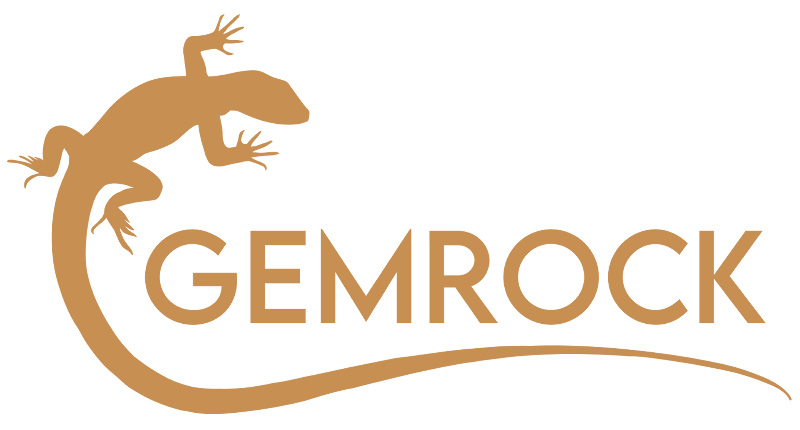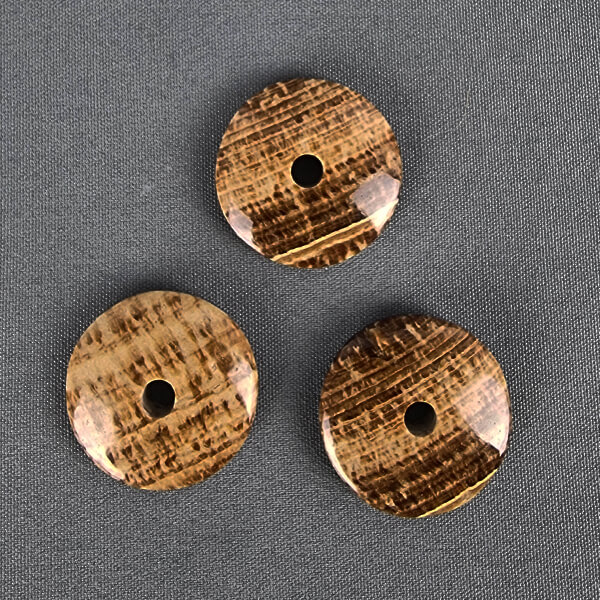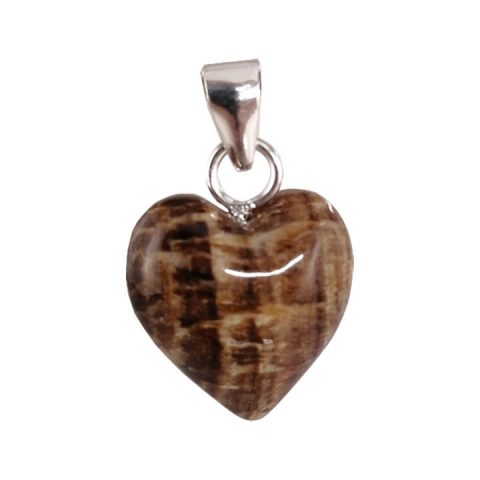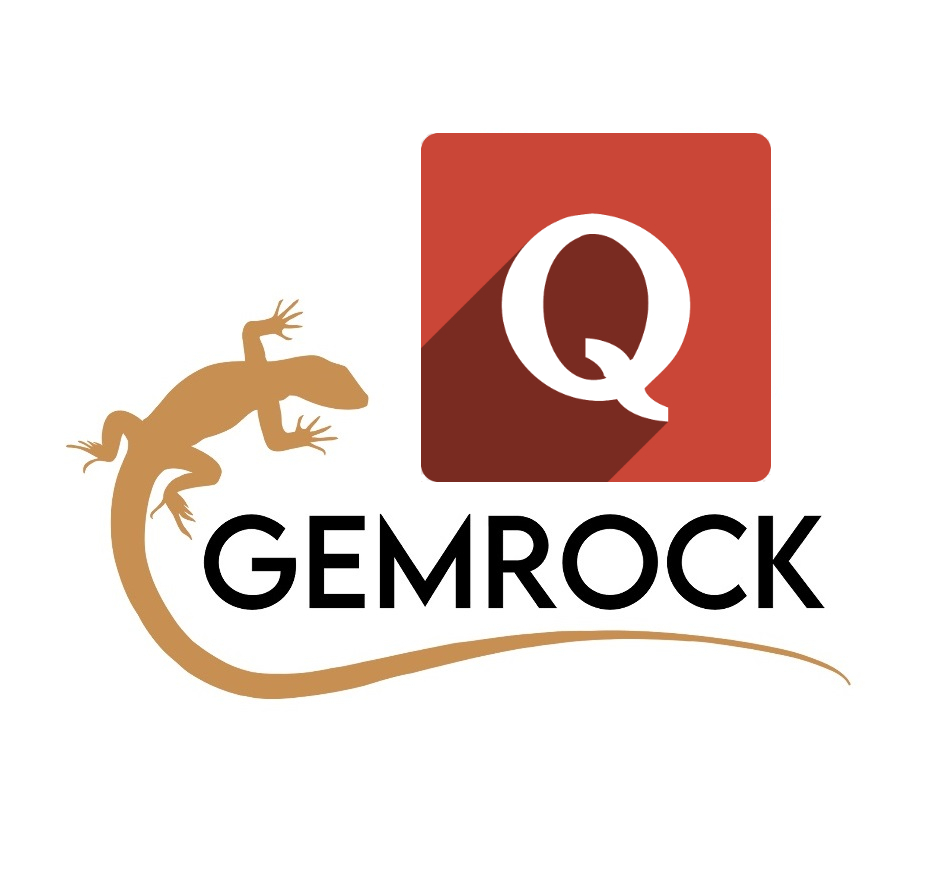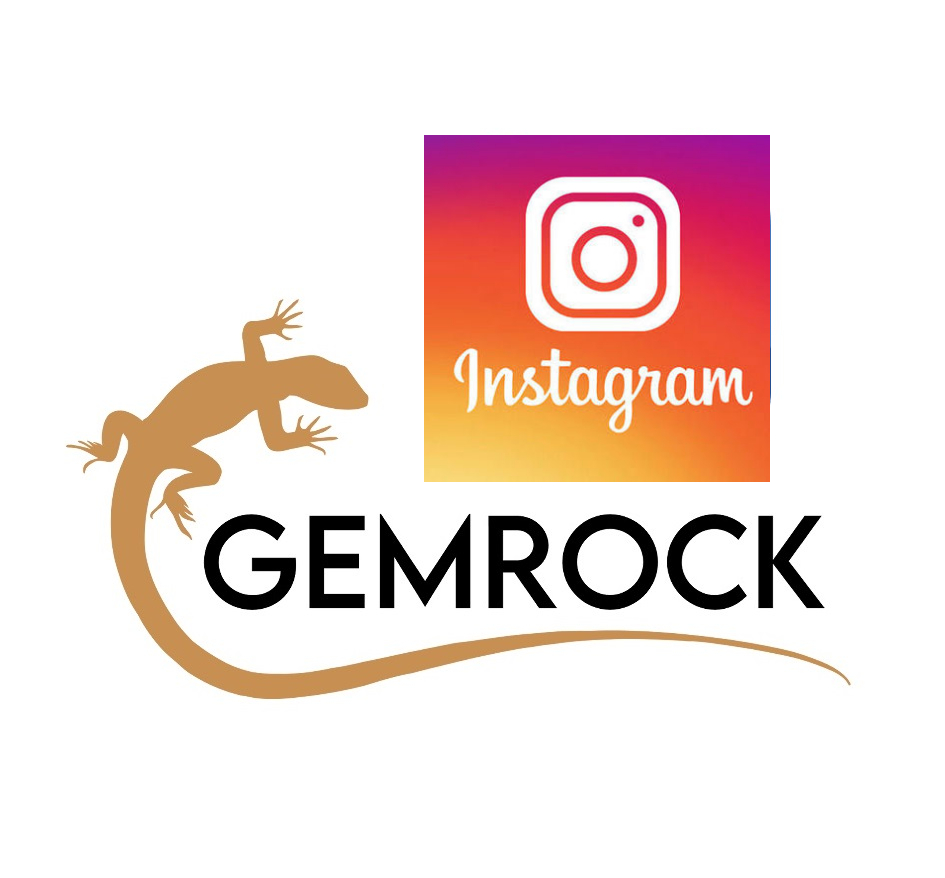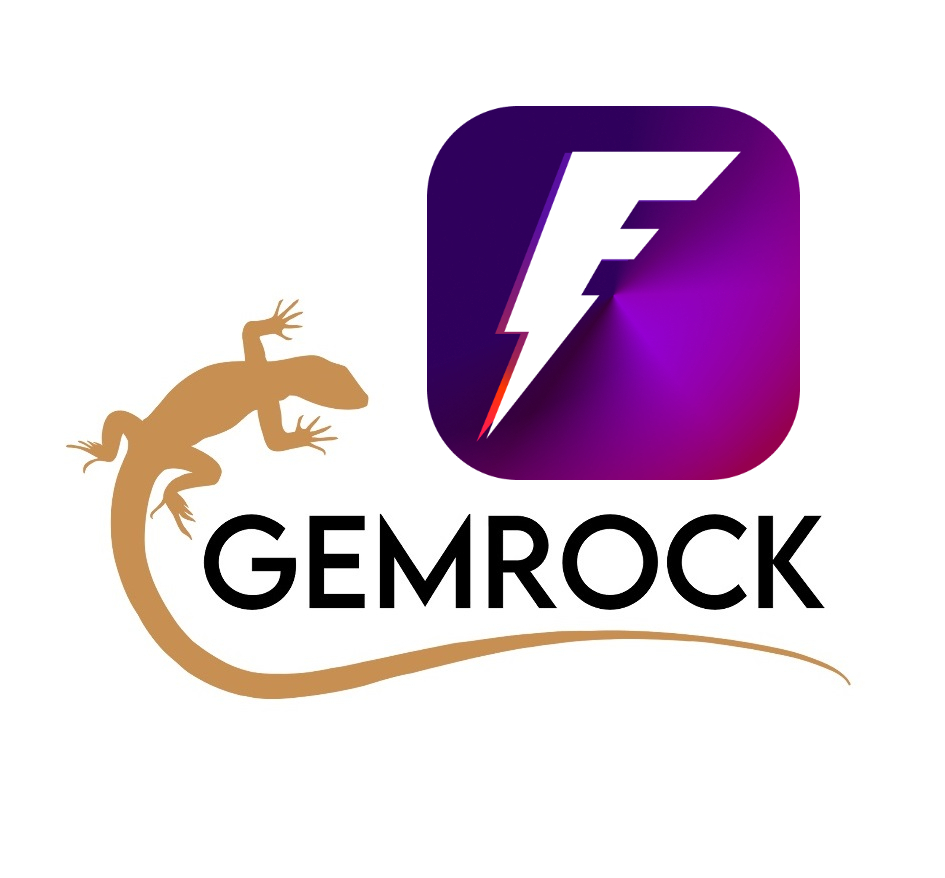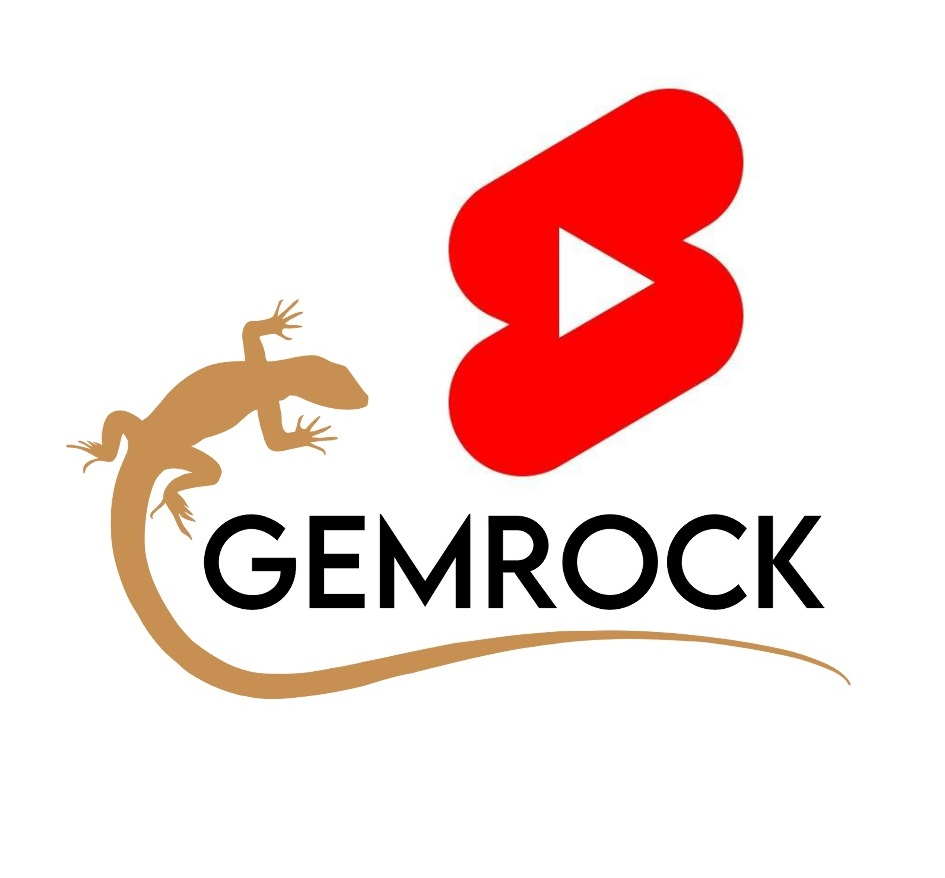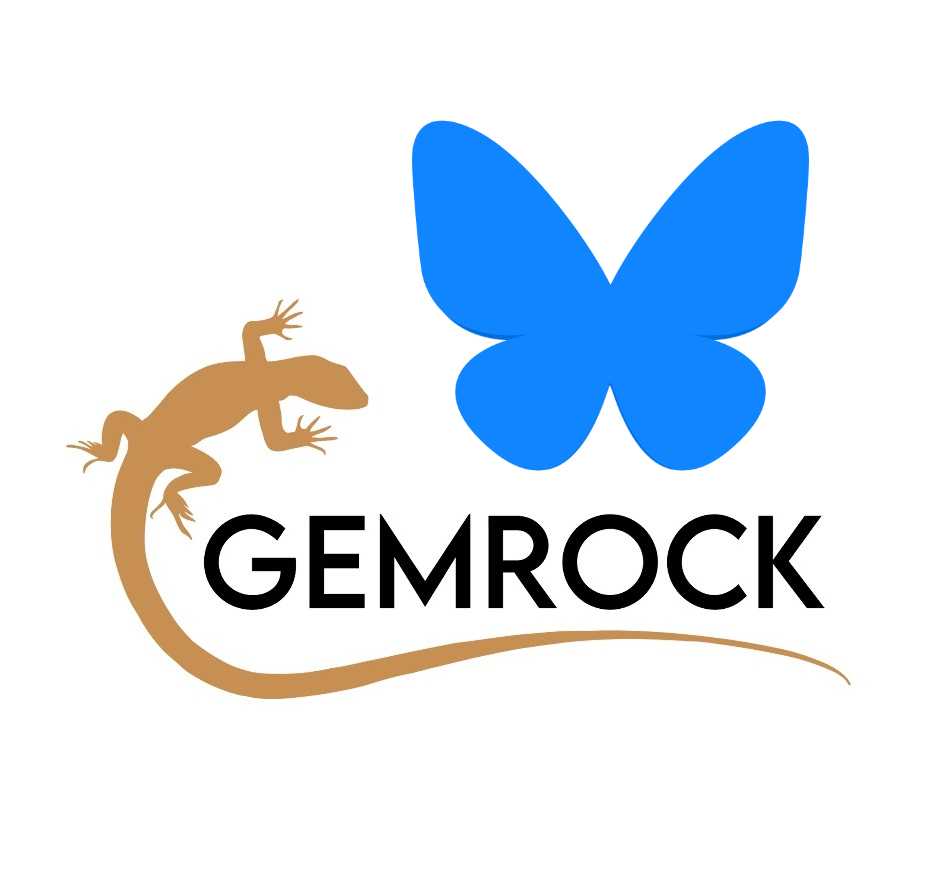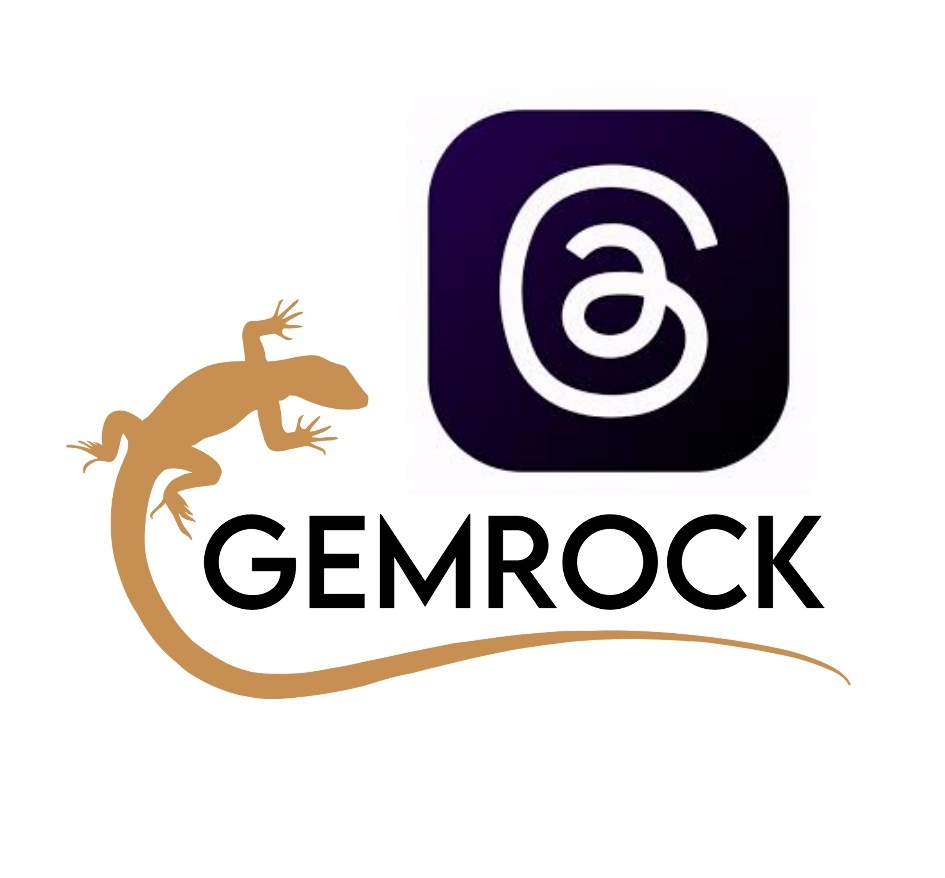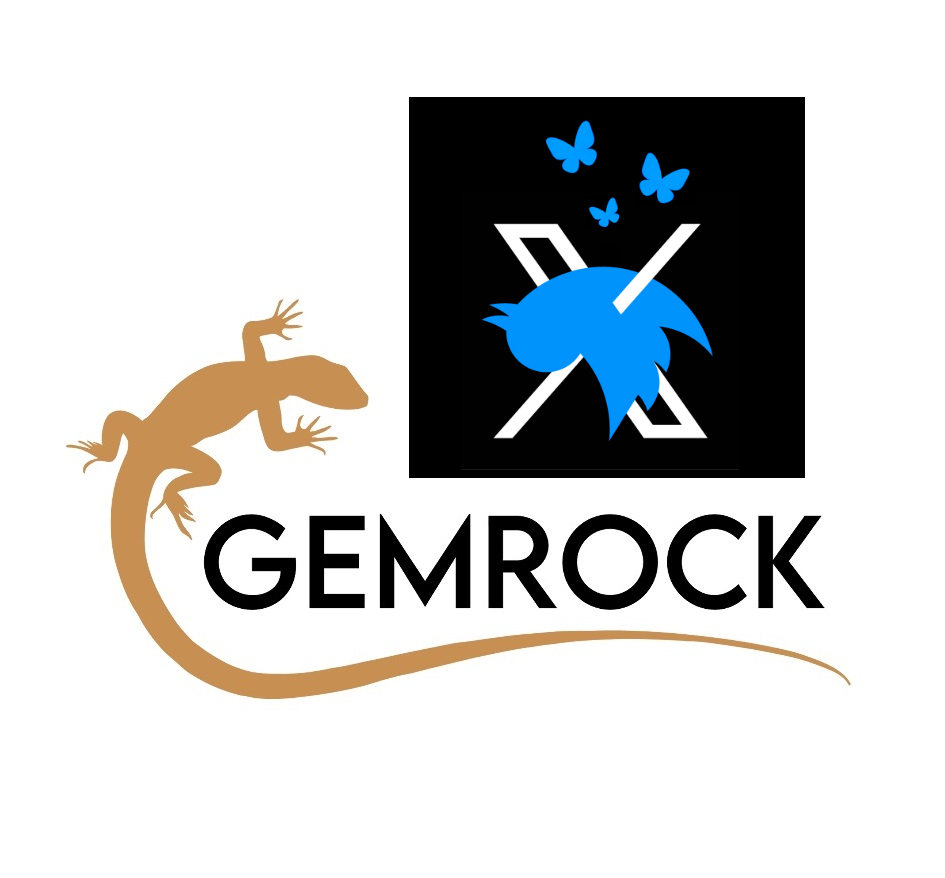(Banded) Aragonite
Gemstone Quality Standard
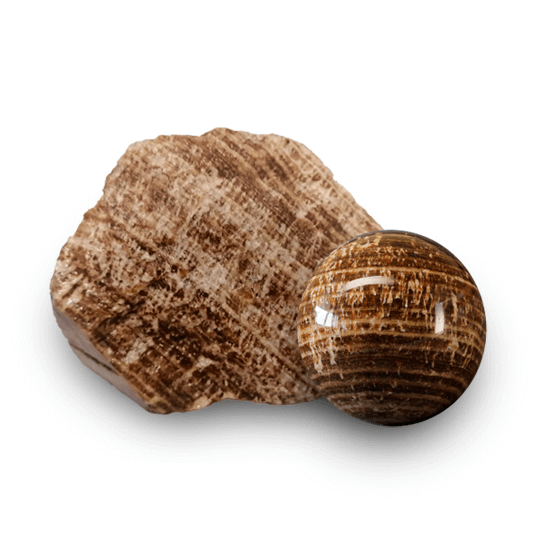
About Aragonite
Aragonite is a carbonate mineral; one of the three most frequent variants of the crystalline forms of calcium carbonates (CaCO3) (the other two varieties being calcite and vaterite). It is formed in biological and physical processes. Biologically, calcite and aragonite form the skeletons and shells of most marine organisms.
Aragonite is also the mineral with which the shells form their pearls. Physically, aragonite deposits are formed in caves with low temperatures such as stalactites in caves. Another way to form deposits is the precipitation or sedimentation of aragonite in marine or aquatic environments. This always occurs in hot waters with a high concentration of hydrogen ions.
Another interesting fact about aragonite is, that it is fluorescent and phosphorescent. Being exposed to UV-light it shows the emission of white light (fluorescence). But when the UV light is switched off it shows a green afterglow, that slowly disappears (phosphorescence).


Rarity
Brown-banded Aragonite occurs only in Peru. It is not a rare stone and can be mined in big quantities.
Availability
We are selling Aragonite as rough rock, in preselected jewelry-grade slabs, as decor products, as cabochons and in our jewelry.


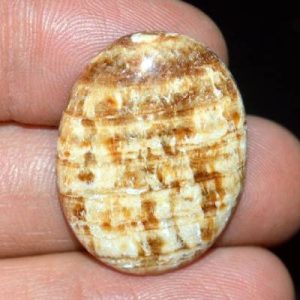
Unsuitable material for jewelry:
- No sharp contrast but washed-out coloring.
- Lots of whitish impure material.

Jewelry-grade material:
- Strong contrast between light and dark lines.
- Crispy lines.
- darker browns preferable with little yellowish material
Color
Brown-banded Aragonite consists of light brown and dark brown layers.
Contrast:
Jewelry-grade material has a strong contrast between the light and dark brown which results in a good definition of the lines.


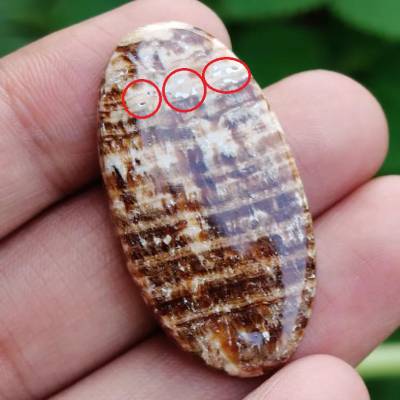
Good color contrast but holes and white impurities
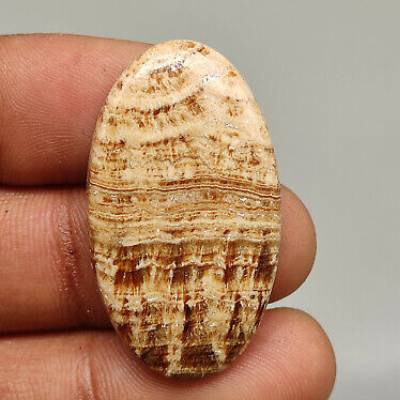
Bad color contrast, too much yellowish material, bad surface polish, lots of pores all over the cab.
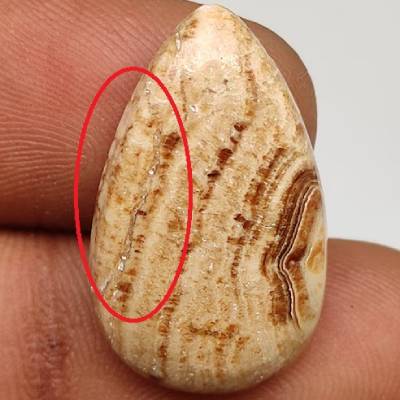
Pores connected along a crack, no color contrast, yellowish impure material, bad surface polish.
Impurities, fibrosity, holes
Impurities
Sometimes Aragonite shows whitish to sand-colored chalky impurities. Material with such impurities is not appropriate for jewelry because it will not polish and should be discarded.
Pores because of fibrosity
Aragonite is a fibrous material. On one hand, this provides an interesting structure to the stone. On the other hand, cabochons made from Aragonite will always show at least a few very tiny holes in the polished surface, caused by the fibrous structure of the stone. Jewelry-grade material should show as few of those pores as possible.
Holes
Apart from the unavoidable fibrous pores, some banded Aragonite shows bigger holes. Such material is inappropriate for jewelry and should be discarded.
Cracks
Holes can connect to cracks, rendering the material unsuitable for jewelry.


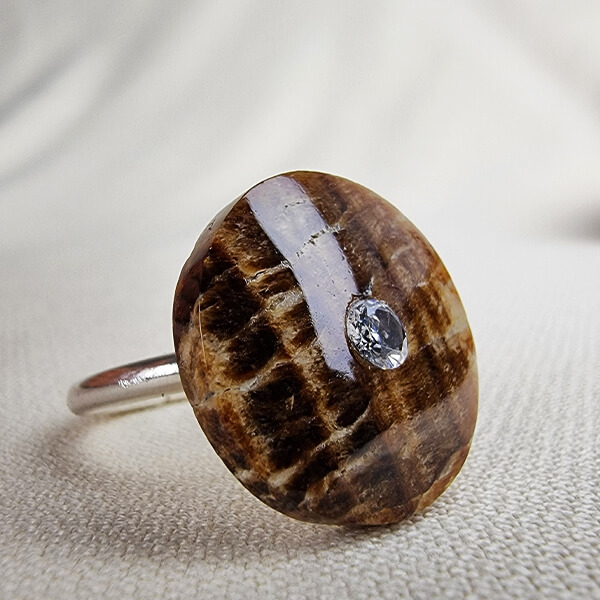
Polishable
Jewelry-grade material with a concise structure and very few fibrous pores and without any chalky impurities can be polished to a glass finish.
You can buy our finished top-quality cabochons for jewelry makers.
National and international shipping from our US-based warehouse.


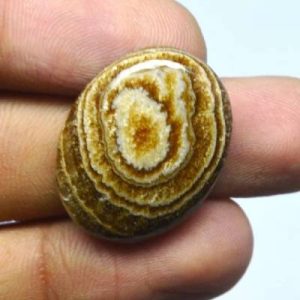
Unsuitable cutting angle: horizontal cut instead of preferable vertical cut.
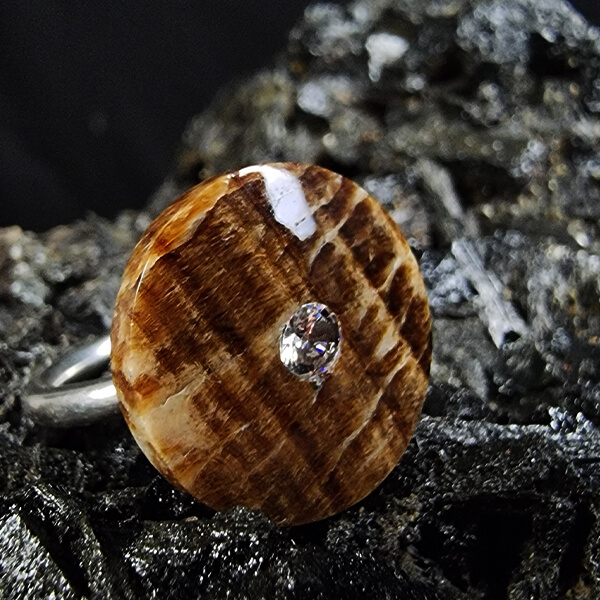
Design
For beautiful cabochons, Aragonite should always be cut vertically to the layers to develop its full beauty. Cabochons that have been cut at different angles or even horizontally (parallel to the layers) do not look good for jewelry and are an indicator of sloppy cutting or an inexperienced gem cutter.


Low-quality cutting – signs of fast and sloppy work
Cutting Quality
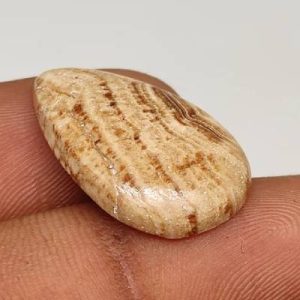
Rounded off edge, no bezel. Low-quality surface polish
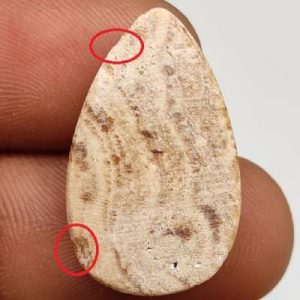
Irregular, chipped, and rounded off lower edge. Back of cab is flattened out with no more than 80 grit.
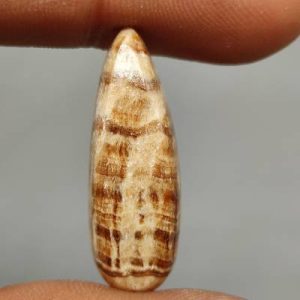
Lightreflection in the upper part exposes an irregular uneven tip shape, top of dome is flattened out.
Advantages:
Aragonite is a soft material that allows for fast cutting. Aragonite does not tend to break or chip. Experienced cutters therefore can obtain very sharp unchipped edges between the backside and bezel as well as between the bezel and dome.
Gemrock cutting-quality is characterized by:
- a vertical cutting angle
- a polished backside
- a sharp unchipped edge between the backside and the bezel
- a very straight and even highly polished bezel
- a sharp unchipped edge between the bezel and the dome
- a well-shaped dome, not showing any deformation
- Top-quality polish


Be aware of wrongful quality grading
It’s commonplace in the crystal industry to cut cheap cabochons from any kind of Aragonite without applying any kind of grading for high-quality material. Most cabochons sold in the internet and certainly most cabochons on low-price platforms like eBay, Etsy or Amazon are made from completely unsuitable material full of impurities, pores and holes. Unscrupulous dealers take advantage of the lack of knowledge of crystal shops, jewelers, and final clients and market such low-grade and even trashy material as Tripple A top-grade material.


Pricing
Adequate pricing must take into account the cost factors to obtain top-quality cabochons:
- Acquisition of top-grade Aragonite with strong contrast (in the mine).
- Selection of material without impurities for jewelry and discarding unsuitable material.
- A usual material loss of approximately 90 % of the selected material during the cutting and shaping process.
- The level of experience required by a cutter to produce a flawlessly shaped and highly polished cabochon.
You can buy our finished top-quality cabochons for jewelry makers.
National and international shipping from our US-based warehouse.
- Market research
- Our Jewelry Grade (A)
- Our Top-Quality Jewelry Grade (AA)
- Our Premium Jewelry Grade (AAA)
The data in this sheet has been compiled by reviewing a great number of websites and sales platforms.
Material quality:
We can find all kinds of material qualities being used for cabochons without any objective grading being applied. Approximately 75% of cabochons seen on offer are made from material that we consider unsuitable for jewelry production.
Cutting quality:
The vast majority of “cabochons” on offer show a very low cutting quality. More than 90% of Cabochons reviewed were cut with rounded corners (similar to a palmstone) which do not show any bezel. We estimate that no more than 10 % of the cabochons that are on offer show a decent level of cutting quality and maybe half of those look excellent. In other words: 90% of offered cabochons would need to be graded below the Gemrock Jewelry Grade (A)
Quality Grading
Most cabochons were offered as AA or AAA quality, which obviously does not represent the reality. Given the fact that there is no commonly accepted grading standard AA and AAA gradings are used as a marketing strategy without reflecting a real criteria of quality. This type of marketing must be viewed as misleading.
Pricing
The average pricing for Aragonite cabochons is 17 cents per carat (with a range from 5 cents per carat to 45 cents per carat).
We could not find a correlation between cutting quality or material quality and pricing. A higher price does not indicate a higher quality.
While the low cutting and material quality maybe could be justified for pricing levels at 5 cents per carat, the same low quality also could be found for sales prices of 45 cents per carat.
Jewelry Grade Material:
The light brown and dark brown layers are strongly contrasted. There are no yellowish-chalky patches, holes, or cracks, and there are few pores.
Cutting Quality:
- Straight bezel (minor irregularities possible), 3 mm high
- Perfect dome (3-5 mm high)
- Edges between bezel and dome, as well as bezel and backside: sharp and crispy, minor chips on lower edge possible
- Backside flat at 280 grit, unpolished
Pricing:
Recommended Retail Price (A): 20 cents per carat
Jewelry Grade Color:
Strong contrast between light brown and dark brown layers. No yellowish chalky patches, no holes or cracks, Very low number of pores.
Cutting Quality:
- Straight bezel, 2-3 mm high
- Perfect dome (3 mm high)
- Edges between bezel and dome, as well as bezel and backside: sharp and crispy, minor chips on lower edge possible but very rare
- Backside flat at 280 grit, unpolished
Additional (AA+): Backside polished to 3000 grit
Pricing:
Recommended Retail Price (AA): 40 cents per carat
AA+: 50 cents/c
Jewelry Grade Material:
Strong contrast between light brown and dark brown layers. No yellowish chalky patches, no holes or cracks, Nearly no pores.
Cutting Quality:
- Cut by our best master cutters
- Straight bezel, 2-3 mm high
- Perfect dome (1-3 mm high)
- The edges between the bezel and dome, as well as the bezel and backside, are sharp and crispy, with no chips on the edges.
Additionally (AAA+): Backside flat at 3000 grit, polished
Pricing:
Recommended Retail Price (AAA): 60 cents per carat
AAA+: 70 cents/c
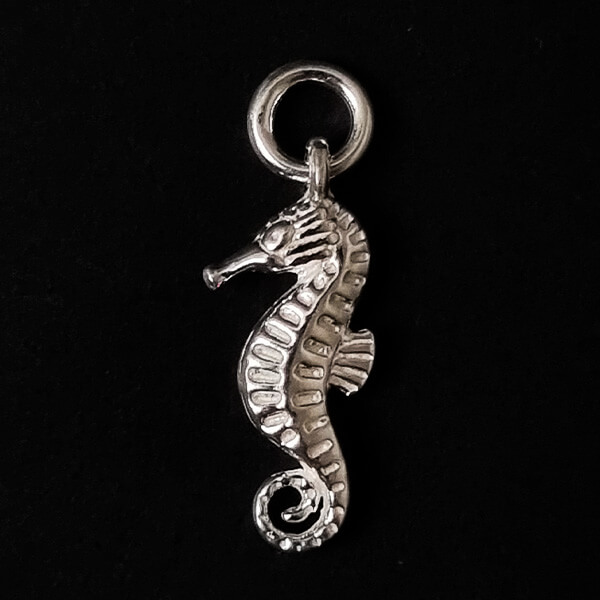
For Charms & Pendants
Ethical Silver Accessories
for Jewelry Makers
Hundreds of charms, pendants & chains
in
950 Silver, Sterling Silver, tarnish-resistant Moonlight Sterling Silver, gold-plated silver and gold.
Guaranteed Free of toxic alloys.
How to avoid fake & toxic silver:
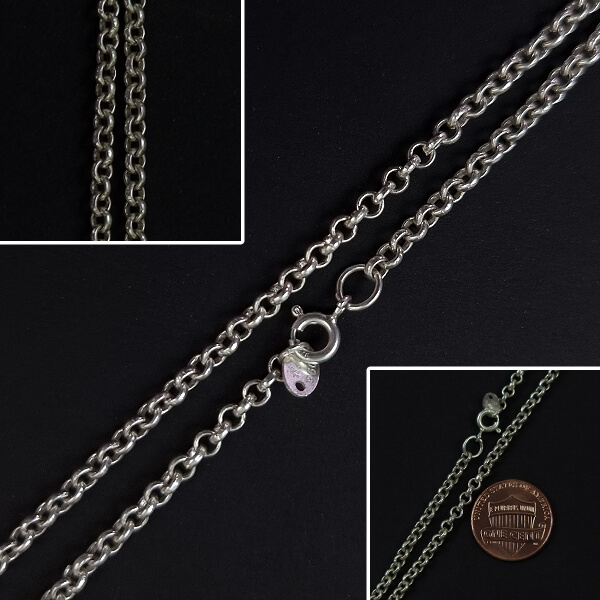
For Chains
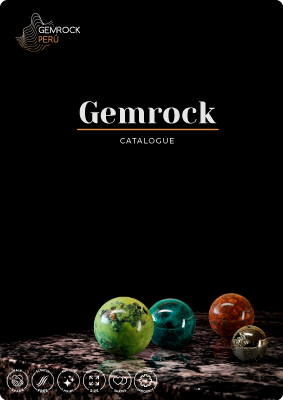
Shop your crystals & jewelry NOW
NATURA MINERA
Achetez vos cristaux Gemrock, produits en cristal et bijoux à Québec
GEMROCK CANADA
Online retail shop of ethical, top-quality crystal specimens, jewelry, and jewelry-maker accessories like cabochons, silver chains, silver wire, and charms. Exports to USA.
Gemrock Peru - Tienda
Venta de cristales naturales, piedras talladas y joyería de Gemrock en Peru a nivel nacional.
Is there anything you wish to know about:
Shipping cost and logistics, Payment options, Product quality, Packaging, Shipping damage, Refunds, etc. ?
Free Gemrock Learning Resources
Connect wherever you want and can
Connect wherever you want and can
Free Gemrock Learning Resources
Cutting services
Do you need reliable high-quality cutting services for a reasonable price? Are you looking for a service provider that is willing to develop new products according to your requirements? Would you like to get expert advice in order to improve your product? Do you wish for someone to optimize the process and get the most out of your rough? Just talk to us.
Get in Touch
+51 994104206
gemrockinternational@gmail.com
